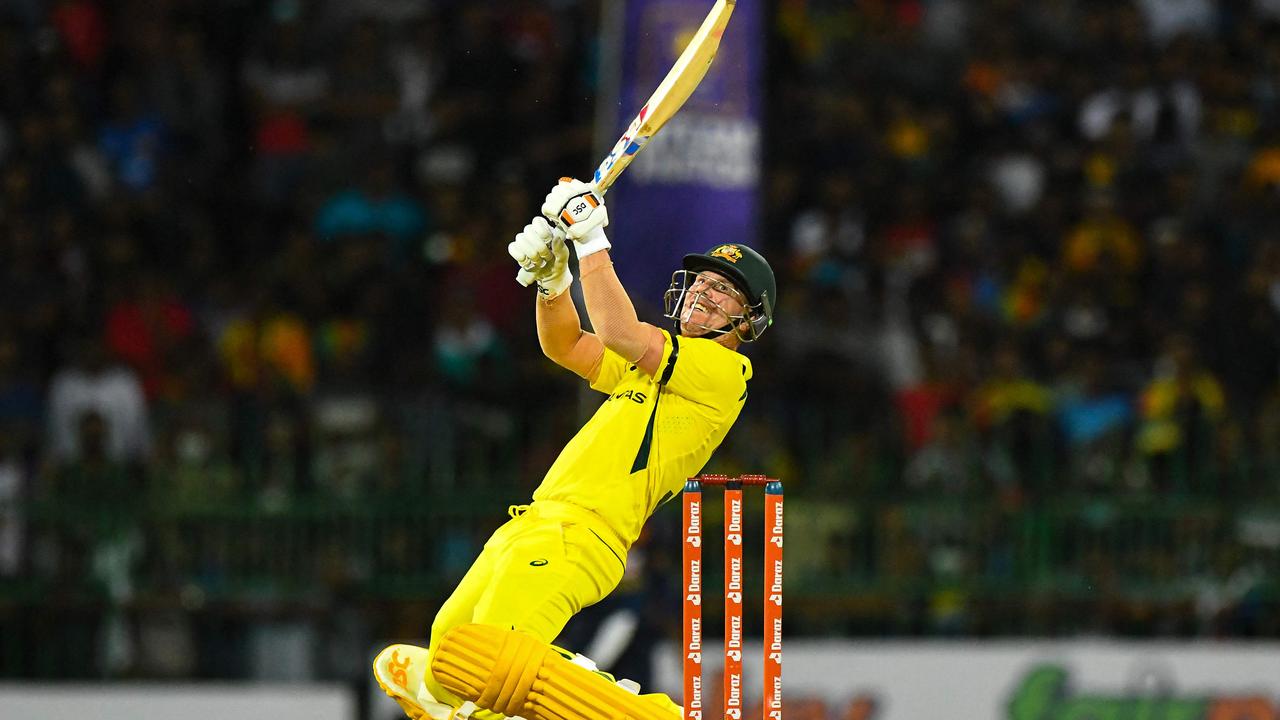When the current history of Hollywood gets written, April 19, 2022 will go down as the day that everything changed.
It should have been a routine earnings call during which Netflix co-CEO Reed Hastings took tech and business reporters through the company’s latest figures. Instead, Hastings revealed that the company had lost hundreds of thousands of subscribers for the first drop in numbers in 10 years.
The revelations immediately set off something of an earthquake from Wall Street to Los Angeles, with $75 billion in value being wiped off the company’s value in 24 hours.
Why this matters are the consequences this precipitous, stunning reversal in fortune could have for two people about 450km south of Netflix’s headquarters, in the wealthy enclave of Montecito.
In the course of that one earnings one call, not only did the streaming giant’s once-unassailable hold on the entertainment industry come unstuck, but so too did the supposedly cashed-up future of Harry and Meghan, Duke and Duchess of Sussex, start to look much less certain.
Monday marks 712 days since the world learned on September 2 2020 that the newly self-emancipated Sussexes had signed a reported $US140 million ($A197 million) deal with Netflix via no lesser news outlet than the New York Times with the story trumpeting the duo’s “new Hollywood careers”.
But today, those “new Hollywood careers” have yet to actually take off while once mighty Netflix has lost more than $US200 billion ($A280 billion) in value (yes, billion with a ‘b’) this year.
Nearly two years on from all the self-contributory ballyhoo of September 2, 2020, the landscape for both the titled duo and the streamer has significantly shifted beneath them all.
Will – or even can – the Sussex/Netflix marriage survive?
Not only have the fortunes of Netflix lurched wildly since 2020 but so have Harry and Meghan’s.
At the time the deal was announced, it seemed like the most obvious and logical pairing: Two of the most famous people in the world would worthily churn out documentaries or some such; inreturn; Netflix got to tout the fact that they had a real life Duke and Duchess on their books. Harry and Meghan would get squillions; the company would reap the rewards of the PR coup of the decade.
However, the royal duo are not exactly the sizzlingly-hot property they were back then now are they?
More than 30 months have passed since Harry and Meghan absconded from a life of stifling royal duty for the greener pastures of California and that lucrative embrace of corporate America.
In that time they have managed to ink a series of headline-making deals, including also with Spotify, the coaching company BetterUp and with Ethic, a fintech asset manager, along with launching their charitable foundation and undertaking a seemingly never ending parade of photo opportunities. .
On paper it sounds like it’s been a whirligig of achievement and just the sort of industrious self-starting that America was founded on. Except … what have they actually achieved?
Yes, they have made a series of donations to causes ranging from the World Food Kitchen to helping fix a women’s shelter’s roof after a storm which reflects their generosity and hunger to help others. Kudos. But writing a check here and there is hardly the sort of work that will ever see them make the long list for the Nobel Peace Prize.
Sadly, for two people who seem to truly care, there is not one issue, not one cause they have really moved the needle on since they embarked on this new life of theirs.
More importantly for their Netflix and Spotify paymasters, they have failed to genuinely set themselves up as leading voices of the day. They might do their darnedest to sell themselves as inspiring leaders but the proof is in the flaccid pudding that was the lackluster turnout to Harry’s recent UN speech from him.
The international community was hardly turning up in droves to hear him speak while Washington has largely ignored them.
Meghan’s cold-calling of senators about paid parental leave last year went down about as well as a gluten and dairy-free scone at a Buckingham Palace garden party and the Duchess has yet to emerge as any sort of powerplayer ahead of the midterm elections later this year.
In late June, the former actress took part in a conversation with feminist pioneer Gloria Steinem for fashion after the horrendous quashing of abortion protection, saying: “Well, Gloria, maybe it seems as though you and I will be taking a trip to DC together soon.”
Nearly two months on, the Duchess has yet to turn up inside the Beltway.
The bottom line is this: Harry and Meghan have proven totally unsuccessful at making themselves matter in the corridors of power in Washington, New York, Silicon Valley or Los Angeles.
The magic dust of their royalty has largely dulled in the last two years and the novelty factor has worn off. So too has their deal-making momentum seemed to have waned with them not having announced any other venture since July 2021 last year when it was revealed Harry was busy working on a memoir.
Things might look different today if in the last 712 days the Sussexes had been churning out series after doco after one-off specials for Netflix, but as we all know, that is not the case. The company has only ever publicly announced two Sussex projects: Harry’s documentary about the sporting event for wounded armed services personnel Heart of Invictus (an amazing initiative he started years ago as a working member of the royal family) and an animated children’s series from Meghan called Pearl.
In early May it was announced that Netflix was axing the Duchess’ show as part of a much bigger cost-cutting move, with numerous high-profile projects canned as the streamer dramatically tighten their belts.
Then later the same month came news that the company was about to get, as Page Six put it, their “pound of flesh” from the duo with the revelation that Harry and Meghan were already filming something called an “at home” docu series which has a hint of the ignominious about it. (More recent reporting has suggested that Netflix wants it to air before the year is out.)
Potentially hundreds of millions of dollars are riding on this docu series for the self-supporting, private jet-flying, polo-loving Sussexes.
If it turns out that the Duke and Duchess are TV gold, if they are about to demonstrate that they are binge-worthy stars who can pull in streaming viewers globally, then their US careers are set. Get another polo pony! Hell, buy seven.
But, if they fail to live up to the hype and the rhetoric? The huge sums being touted and all those lovely millions supposedly coming their way could dry up faster than a Californian lake.
(And it’s not as if their docuseries is likely to feature much royal access given that Harry and Meghan were embarrassingly sidelined by The Firm when they were in London for the Platinum Jubilee.)
Netflix is clearly a very patient company when it comes to their superstar recruits. Take Barack and Michelle Obama who signed to Netflix and Spotify after they left the White House.
However, this week, Harry and Meghan will break the Obamas’ track record of the 716 days which elapsed between their Netflix deal being announced and their first marquee project starring one of them, coming, being released. (And in the interim they had released two children’s shows and produced two documentaries, one of which won an Oscar.)
Harry and Meghan might have titles and the Buckingham Palace Wi-Fi password but that is not enough of a distinction for big companies to merrily tip millions into their bank accounts for the chance to work with them. They have to actually do something to provide themselves.
They can’t just hope they can coast along on the whiff of a mothballed HRH here forever more.
Since that earnings call in April, Netflix has laid off hundreds of staff and made the drastic decision to finally introduce advertising to the platform. Can the company still afford to carry big name stars who don’t deliver on their books?
Just how much patience and faith will this newly humbled Netflix have for their yet-to-perform big-name hires?
To some degree, the same goes for Spotify too here.
In April, Meghan’s first outing for the audio giant called Archetypes was announced, promising a “groundbreaking” series would launch during the northern summer. With only weeks to go before autumn begins, again, the clock is ticking.
Daniela Elser is a royal expert and a writer with more than 15 years’ experience working with a number of Australia’s leading media titles.
.









